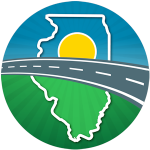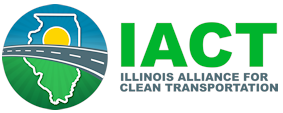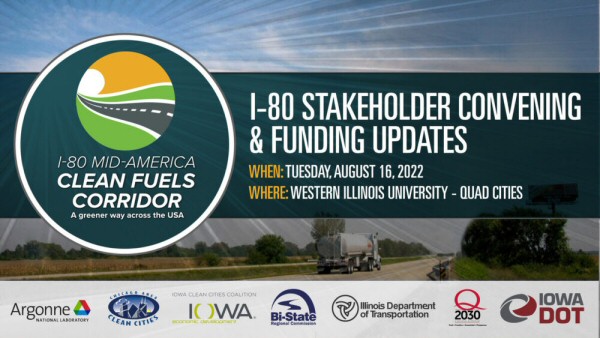Government agencies in Illinois and Iowa partner together to showcase the project
MOLINE, Illinois, Aug. 8, 2022 – The second-longest interstate highway in the United States, Interstate 80, is undergoing a transformation for electric vehicles and low-emissions alternative fuels.
To highlight this transformation and the economic opportunities it provides, the Illinois Department of Transportation, Chicago Area Clean Cities Coalition, the Bi-State Regional Commission, and others are hosting a convening session on Tuesday, Aug. 16, 9 a.m. to Noon, at Western Illinois University – Quad Cities. Space is limited for the session.
“Interest 80 runs through many major cities, including Des Moines, Omaha and Toledo, on its way across the country,” said John Walton, chair, Chicago Area Clean Cities Coalition. “It passes within 10 miles of Chicago, Cleveland, and New York City. I-80 is the Interstate Highway that most closely approximates the route of the historic Lincoln Highway, the first road across the U.S. It only makes sense now when we’re transitioning our nation’s fleet of vehicles to electric and low-emissions alternatively fueled vehicles that I-80 gets a face lift to support these vehicles with power sources.”
“As a designated corridor of the Federal Highway Administration Alternative Fuels Corridor (AFC) initiative, I-80 is critical for transporting goods between states,” Walton said. “We encourage potential site hosts such as convenience stores, fueling stations, hotels, travel destinations, municipalities, metropolitan planning organizations, and councils of government, energy, transportation, and sustainability officials, utilities, fuel providers, and fleets using, or open to using, alternative fuels to join us for this session.”
As a part of the Federal Highway Administration’s corridor project, when the I-80 corridor is complete, electric vehicle charging will be available at least every 50 miles and compressed natural gas (CNG) fueling will be available at least every 150 miles, giving EV and CNG drivers confidence on the road. While the I-80 Clean Fuels Corridor extends from New Jersey to the Iowa-Nebraska border, this session is for Illinoisans and Iowans who want to know more about the project, funding availability, and provide suggestions on station locations.
Alternative fuel corridors are federally designated routes on major highways that allow for inter-city, regional, and national travel using lower-emission vehicles. The national network of alternative fuel corridors includes sections of nearly 180 heavily traveled interstates and highways in nearly all 50 states and cover more than 135,000 miles of the National Highway System.
Alternative fuel corridors extend throughout Illinois and are not limited to I-80. A corridor-ready designation means sufficient refueling access exists along that section of highway for that specific alternative fuel. Corridor-pending means there is some fueling infrastructure, but gaps currently exist. New alternative fuel sites can help fill these infrastructure gaps in Illinois, accelerating the transition to lower- emission vehicles and ensuring that the growing number of drivers have consistent access to fueling and charging options.
“Alternative fuels play an important role in Illinois’ economic and environmental success. Alternative fuel corridors improve air quality, especially to communities living closest to highways,” Walton said. “Significant opportunities exist to fill remaining gaps in alternative fueling across all highways. In addition to the health-related benefits, and energy security, the installation of new fueling infrastructure supports jobs throughout the state.”
A limited number of seats are available to attend the session but attending virtually is an option. To register, visit https://I-80CleanFuelsCorridor.eventbrite.com.
About Chicago Area Clean Cities
Chicago Area Clean Cities, a nonprofit coalition focused on promoting clean transportation in Chicago and the surrounding suburbs, has been working with commercial and government fleets for nearly 30 years to help them transition to sustainable transportation. The coalition’s membership is comprised of federal, state, and local governments, corporations, small businesses, and individuals. These stakeholders come together to share information and resources, educate the public, help craft public policy, and collaborate on projects that reduce petroleum use.
Chicago Area Clean Cities is one of more than 75 coalitions across the country affiliated with the U.S. Department of Energy’s Clean Cities program, which brings together stakeholders to increase the use of alternative fuel and advanced-vehicle technologies, reduce idling, and improve fuel economy and air quality. The coalition concentrates its efforts on educating businesses and municipalities in the six-county Chicago region, including Cook, DuPage, Kane, Lake, McHenry, and Will counties.
# # #



